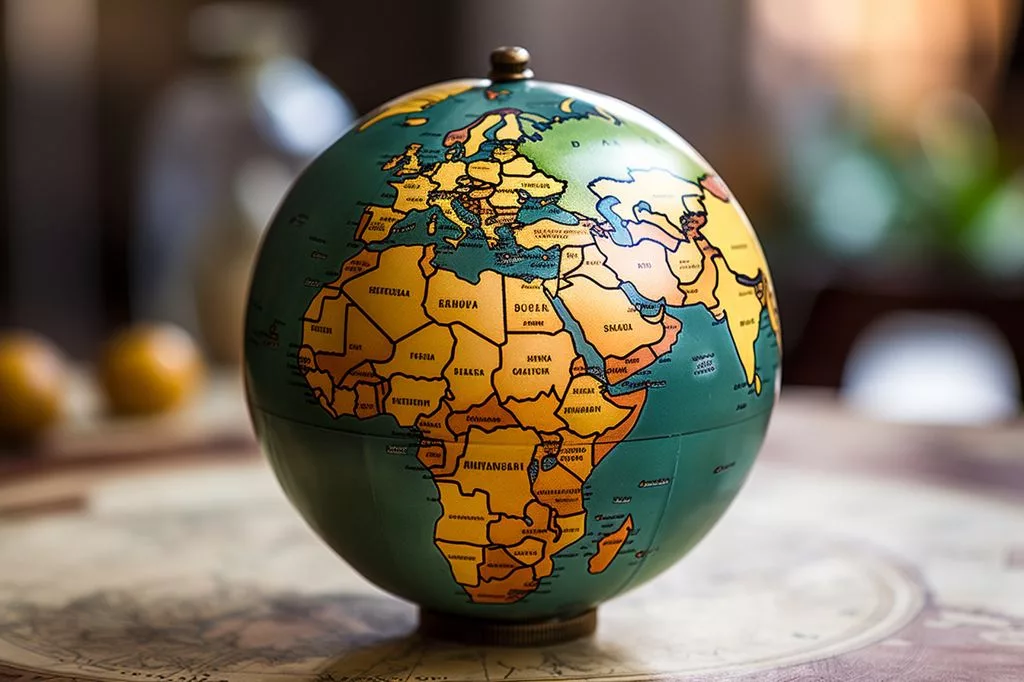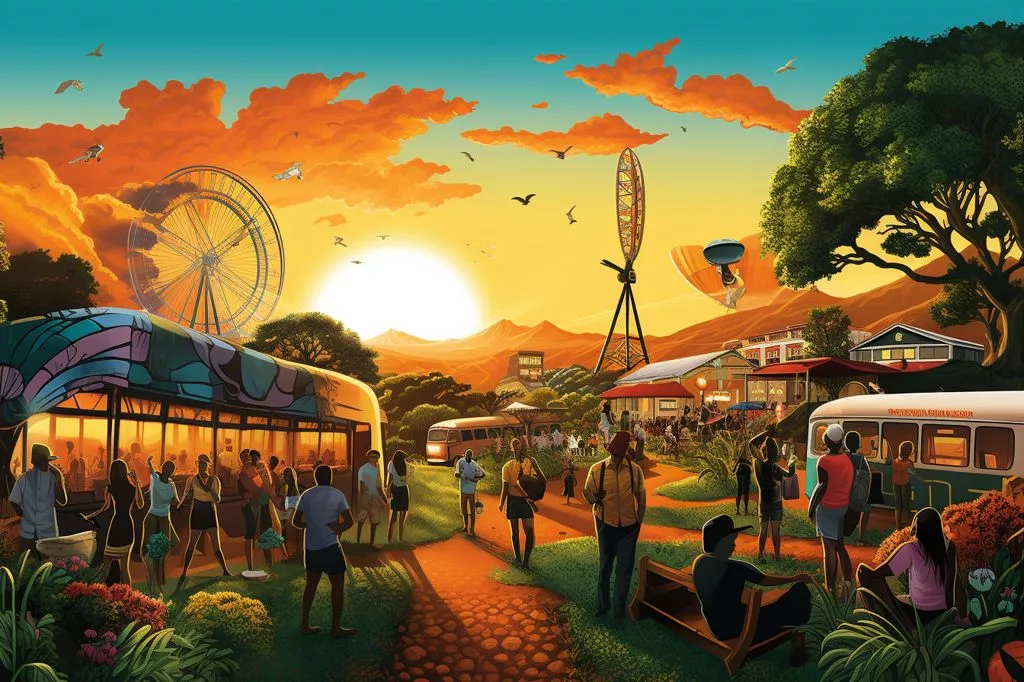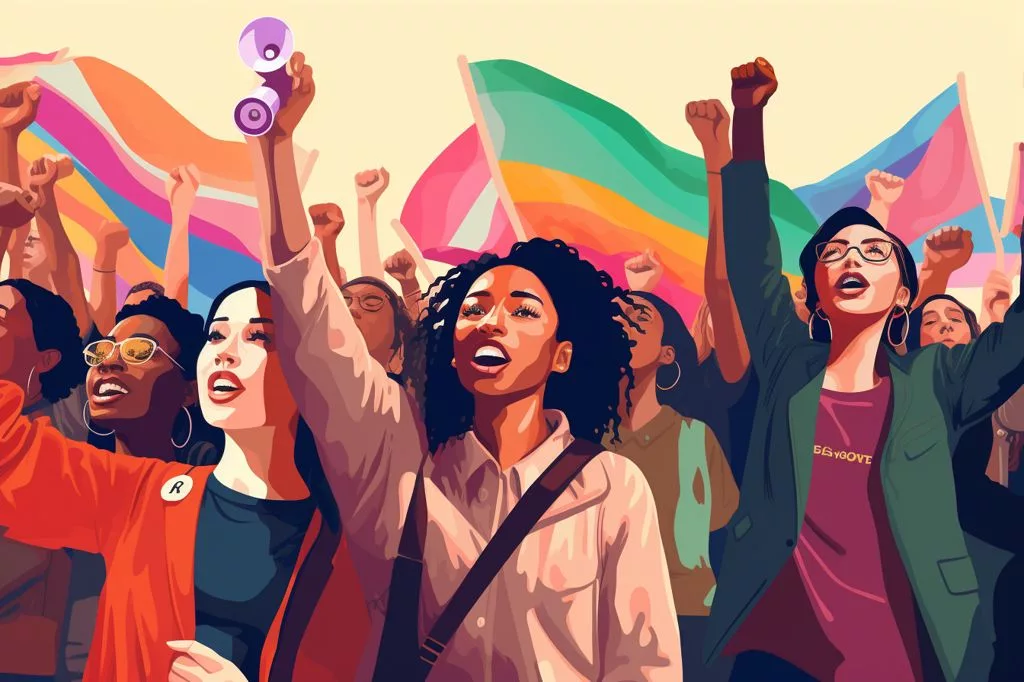Africa Oil Week 2023 focused on “Maximising Africa’s Natural Resources in the Global Energy Transition” and promoting unity and collaboration among African countries to fully utilize their natural resources and promote sustainable development. Deputy President Shipokosa Paulus Mashatile emphasized the significance of unity and collaboration among African countries to address energy shortages and identify alternative sources of energy. Africa Oil Week reinforces partnerships between governments and businesses across the continent and advocated for sustainable carbon management practices in the oil and gas sector while addressing climate change.
What was the theme of Africa Oil Week 2023?
The theme of Africa Oil Week 2023 was “Maximising Africa’s Natural Resources in the Global Energy Transition”, with a focus on fostering unity and collaboration among African countries to fully utilize their natural resources and promote sustainable development. The conference sought to reinforce partnerships between governments and businesses across the continent, with an emphasis on advocating sustainable carbon management practices in the oil and gas sector and addressing climate change.
Unity and Cooperation: Key to Africa’s Sustainable Development
During the Africa Oil Week conference held in Cape Town, Deputy President Shipokosa Paulus Mashatile delivered a keynote address emphasizing the significance of unity and collaboration among African countries to fully utilize their natural resources and promote sustainable development. In its 29th year, the conference sought to reinforce partnerships between governments and businesses across the continent.
With a theme of “Maximising Africa’s Natural Resources in the Global Energy Transition,” the Deputy President pointed out that the ongoing energy transition poses both challenges and opportunities for Africa. As the continent’s economies grow, they face energy shortages and the need to identify alternative sources of energy.
Countries like South Africa are actively searching for alternative energy solutions to address electricity shortages and bolster economic growth. Mashatile expressed optimism that the conference would give rise to substantial discussions and strategies to tackle Africa’s energy challenges.
Africa Rising: Towards a United, Thriving Continent
In recent decades, the “Africa rising” narrative has gained traction, with countries such as Nigeria, Ghana, Rwanda, Kenya, Angola, and South Africa making significant economic advances even amid global challenges, including the COVID-19 pandemic. The African Union’s Agenda 2063 envisions a prosperous, united, and thriving continent, with the Africa Free Continental Trade Area agreement playing a pivotal role in stimulating intra-African trade, investment, and industrialization.
Aligned with the goals of the 2023 Africa Oil Week, Mashatile encouraged participants to advocate sustainable carbon management practices in the oil and gas sector, strive for equitable transactions with worldwide consequences, and leave a legacy of socio-economic development throughout Africa. Additionally, he drew attention to the relationship between the oil and gas industry and several United Nations Sustainable Development Goals (SDGs), such as SDG 7 (affordable and clean energy), SDG 8 (decent work and economic growth), and SDG 9 (industry, innovation, and infrastructure).
However, the Deputy President acknowledged the contradiction between Africa’s abundant natural resources and the prevalent poverty and underdevelopment. He underlined the necessity for a united approach in harnessing these resources to empower African nations and tackle persistent poverty.
Addressing Climate Change and Encouraging Investment
Mashatile also discussed the global climate change crisis and the need for a just response. He argued that Africa must establish reasonable transition periods for fossil fuel consumption, considering the continent’s developmental requirements. Concurrently, African nations should adopt carbon management practices and renewable energy sources to minimize environmental impacts.
The Deputy President explored the role of Foreign Direct Investment (FDI) in Africa’s development trajectory. In spite of a 37% decline in FDI to the continent in 2022, Mashatile identified significant opportunities for FDI growth in countries like South Africa, Angola, Côte d’Ivoire, Egypt, Nigeria, and Morocco.
Africa Oil Week: Collaborating for a United, Prosperous Future
In his conclusion, Mashatile emphasized the crucial role of platforms such as Africa Oil Week in fostering collaboration, economic growth, and sustainable development throughout the continent. When African leaders, governments, and businesses join forces, they can more effectively address global crises and strive for a united, prosperous future in accordance with the SDGs and the African Union’s Agenda 2063.
1. What is the theme of Africa Oil Week 2023?
The theme of Africa Oil Week 2023 is “Maximising Africa’s Natural Resources in the Global Energy Transition”, with a focus on fostering unity and collaboration among African countries to fully utilize their natural resources and promote sustainable development.
2. Who delivered the keynote address at the Africa Oil Week conference?
Deputy President Shipokosa Paulus Mashatile delivered the keynote address at the Africa Oil Week conference.
3. What is the significance of unity and collaboration among African countries?
Unity and collaboration among African countries are significant as they can help address energy shortages, identify alternative sources of energy, and promote sustainable development.
4. What is the relationship between the oil and gas industry and the United Nations Sustainable Development Goals?
The oil and gas industry has a relationship with several United Nations Sustainable Development Goals (SDGs), such as SDG 7 (affordable and clean energy), SDG 8 (decent work and economic growth), and SDG 9 (industry, innovation, and infrastructure).
5. What is the “Africa rising” narrative?
The “Africa rising” narrative refers to the economic advances made by countries such as Nigeria, Ghana, Rwanda, Kenya, Angola, and South Africa, even amid global challenges, including the COVID-19 pandemic.
6. What is the African Union’s Agenda 2063?
The African Union’s Agenda 2063 envisions a prosperous, united, and thriving continent, with the Africa Free Continental Trade Area agreement playing a pivotal role in stimulating intra-African trade, investment, and industrialization.
7. What is the role of Foreign Direct Investment (FDI) in Africa’s development trajectory?
Foreign Direct Investment (FDI) plays a crucial role in Africa’s development trajectory, as it can help stimulate economic growth and development in countries like South Africa, Angola, Côte d’Ivoire, Egypt, Nigeria, and Morocco.
8. What is the role of Africa Oil Week in fostering collaboration and sustainable development throughout the continent?
Africa Oil Week plays a crucial role in fostering collaboration, economic growth, and sustainable development throughout the continent, by bringing together African leaders, governments, and businesses to address global crises and strive for a united, prosperous future in accordance with the SDGs and the African Union’s Agenda 2063.








